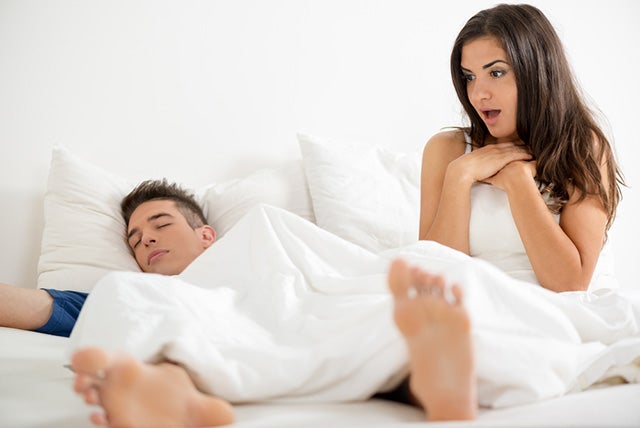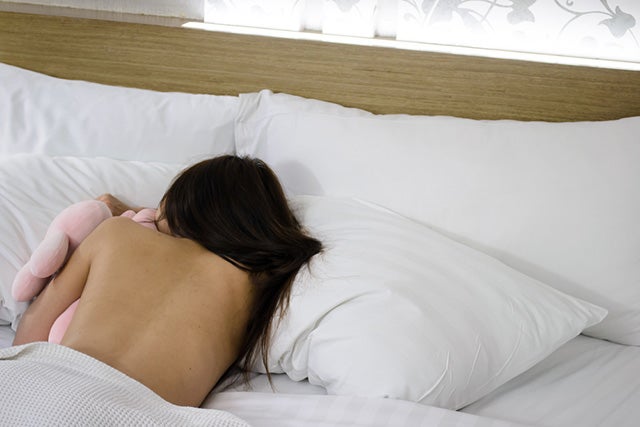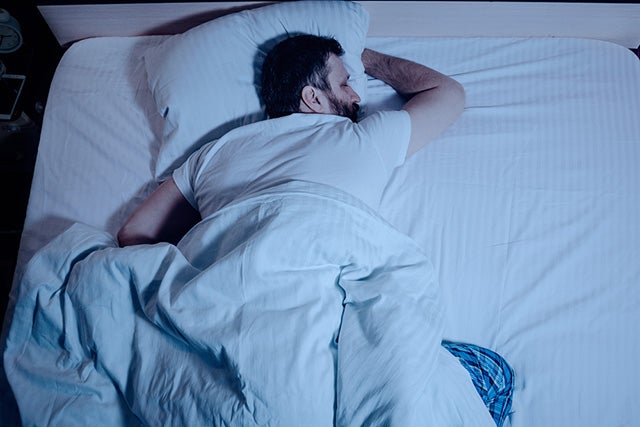Wet dreams are a thing, and although most males can definitely affirm this, many women are unaware that they too most likely have experienced this physical response to nocturnal sexual arousal.
It is a perfectly normal response to sexual hormonal levels in regards to emotional or mental stimulus. Even though many people are unaware that orgasms can be reached without external, physical stimulation, it is more common than you may realize.
Sleep orgasms vary from person to person with some people well aware of how often this occurs, while others are completely oblivious of it.
You might want to check: Best Sex Toys to Put You to Sleep
Female vs. Male Sleep Orgasms
Due to the evidence a male orgasm leaves behind, it isn’t surprising that initial studies on this subject found that 83% of men have admitted to an orgasm in their sleep opposed to 37% of women. But, research through the years has shown that a much higher percentage of women do in fact have sleep orgasms more often than they realize.
Both men and women experience higher incidences of this occurrence during and through puberty, most likely due to the hormonal fluxes the body is experiencing. Male sexual organs do need to release seminal fluids as well, leading to ejaculation through the night.
Adults absolutely experience “wet dreams” after puberty, just not as frequently as those experiencing huge fluctuations in hormone levels.
Why You Orgasm in Your Sleep
Why we orgasm in our sleep is based mainly on educated theories due to the difficulty of true hormonal and brain function measurement for an event that is not something that can be scheduled for study.
While we sleep our body slips into cycles that lower body temperature and respirations to help increase blood flow through the body. Similar to how our lungs know to keep functioning while we sleep, genital arousal may occur during sleep to help keep blood and oxygen flowing through genital tissues.
One of the deepest stages, yet the most active, is the REM stage marked by rapid eye movement (hence the name) and an increase in brain function. Blood flow to the genitals are increased at this time as well, and some studies have suggested sleeping on our stomach may also help stimulate the genitals and increase the frequency of erotic dreams.
There are some specific events that might increase the likelihood of an orgasm occurring.
• Dreaming
During the REM stage of sleep your deepest, most active dreaming occurs. Having a sexual dream during this stage influences blood flow, which is already likely increased in the genital areas.
• Stress
Stressful periods in your life often increase nocturnal brain function and can lead to an increase in dreaming, and thus nocturnal ejaculation.
• Excitement
Like stress, your body responds with an increase in brain function and disruptions in sleep. This often leads to more active REM stages and an increase in genital blood flow.
Ways to Support Sleep Orgasm
As mentioned earlier, if you are looking to achieve orgasm while you sleep, you may want to sleep on your stomach. If you aren’t a stomach sleeper, you can consider sleeping on your side and leaning forward on a body pillow to help support your body weight.
Mentally stimulating yourself through erotic thought, video, or text prior to going to bed can also increase the likelihood that you also begin to dream of sexually stimulating situations.
Speaking of sexually stimulating situations, aiming to have more orgasms while awake can help increase your body’s responses to other stimulating experiences. The old saying practice makes perfect definitely applies to how your body responds to physical stimuli. In fact, many studies have shown the more orgasms women have, the easier they are to have again later.
Ways to Try and Stop Sleep Orgasm
Although it is difficult to control what you dream about, you can take some steps to avoid orgasms while you sleep. Whether you simply don’t want the mess, or don’t want to deal with the lingering emotions after waking, the following may help you take a bit more control over your body’s responses while you sleep.
If stress and excitement can actually stimulate more incidences of sleep orgasms, then the opposite is also true. Getting enough sleep and relaxation can work to let your mind calm and provide a deeper, less active REM cycle.
Avoid caffeine, alcohol, and tobacco prior to bed as well. These can stimulate you mentally and increase stressors – both positive and negative – which increase the chances you will have active REM stages.
Avoiding sleeping on your stomach or left side also helps keep blood flow more evenly paced through the body and not settling into the genital area. Wearing loose fitting clothing helps avoid physical stimulation as well, no matter what sleep position you are in.
A cool shower before bed also helps decrease blood flow to the surface of your skin and centers it in your body. This can help decrease genital stimulation through the night.
You might want to check: Does Sex Help You Sleep?
Wrapping It Up
So, to answer the questions, yes you most certainly can orgasm in your sleep and most likely do so without always knowing. Men are more likely to be aware of it for obvious reasons, but more women than what is recorded in observational studies do as well.
Some people enjoy the effects when they are aware of it, while others may not. Dreaming, although difficult to control, can stimulate nocturnal ejaculation but it also can be influenced with a healthy, more relaxed lifestyle and the avoidance of sexually stimulating situations.
Photo credit: MilanMarkovic78/Shutterstock;
Ollyy/Shutterstock; Ai2myyy/Shutterstock;
faak/Shutterstock; AA.Shkob/Shutterstock;
Alexandra Reinwald/Shutterstock





